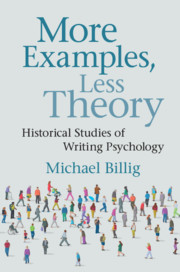2 - Locke and Shaftesbury
Foster Father and Foster Son
Published online by Cambridge University Press: 12 September 2019
Summary
John Locke and the third Earl of Shaftesbury were bound by close personal ties, yet they had opposing views of the mind and the nature of language. Shaftesbury’s Characteristicks is the very antithesis of Locke’s Essay Concerning Human Understanding. This chapter shows that Locke anticipated the development of mainstream psychology, especially with his concept of the association of ideas. When Locke presented examples of various types of association, they were minimal, conveying little extra detail. Shaftesbury proposed a dialogical view of the mind and used language in a very different way than Locke. Shaftesbury’s view of thinking, as internal dialogue, curiously anticipates Freud’s self-analysis. Shaftesbury’s examples are extended, and he does not coerce them into a theoretical structure. In the contrast between Locke and Shaftesbury, we can see the beginning of debates about the mind that persist in the present.
- Type
- Chapter
- Information
- More Examples, Less TheoryHistorical Studies of Writing Psychology, pp. 13 - 46Publisher: Cambridge University PressPrint publication year: 2019



